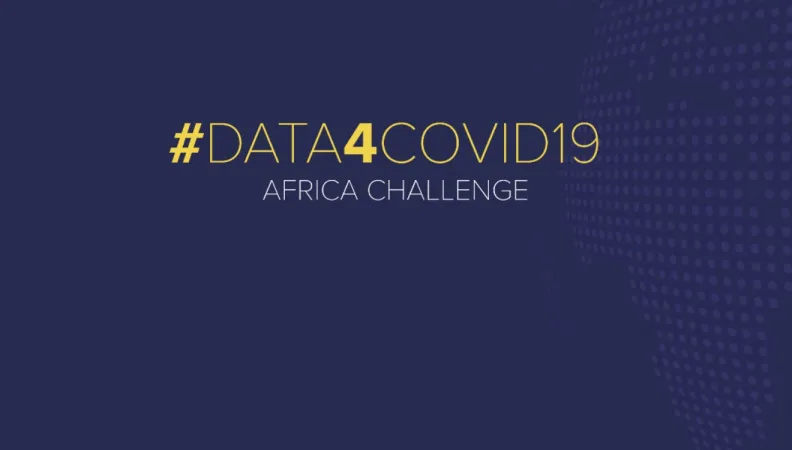Share the page
#Data4Covid19: The Challenge for Africa
Published on

A call for innovative proposals: from December 15 to February 5, 2021, AFD, in collaboration with Expertise France and The GovLab, is inviting researchers specializing in data analysis to address the challenges associated with Covid-19 in Africa. The objective is to develop innovative projects to facilitate the production of data that can be used collaboratively.
Visit: https://datachallenge.africa/index.html. Applications close on February 5, 2021.
To better understand and respond to the vast range of issues resulting from the Covid crisis, policy-makers will need to tap into innovative uses of data. This is the starting point for the Covid-19 – Health in Common initiative, launched by France via AFD in the summer of 2020. And it’s data that will help African countries cope with the pandemic.
That's why the Data Challenge Africa call for innovative proposals has been issued, to put data to better use at a time when the stakes could scarcely be higher.
A subject of common interest, even outside Africa
“The current Covid-19 pandemic is a human tragedy which is affecting people all over the world,” says Peter Addo, AFD data specialist and Director of Datalab, and tasked with facilitating data analysis on the continent. “Africa is not the best equipped in terms of health care and there was concern that its systems would be overwhelmed by the rising number of cases. So far, in comparison with other continents, this has not been the case.”
However, Africa as a whole has passed the threshold of 50,000 deaths from Covid-19 and, in the absence of a predictive model, there is concern that the pandemic will continue to spread, with severe consequences for countries with fragile health and economic infrastructure.
“Understanding why and how Africans have avoided being worse hit by the virus so far is relevant not only for Africa, but also for Europeans,” says Peter Addo. “If developed countries can understand the conditions that led to the relatively moderate health situation in Africa, it will help them work out why their own experience was so different.” Sharing this knowledge may have reciprocal benefits: curbing a major surge in Africa, and possibly providing lessons for European countries mired in their second wave.
Where is the Data?
Policy-makers need detailed analysis and practical ideas to guide their decisions, support major initiatives and monitor their impact. Where do the vulnerabilities lie? What conditions will curb or accelerate the spread of the epidemic? Which variables make a difference? How and where should the right resources be deployed? Nonetheless, to answer these questions, other issues need to be addressed first: where is the data? How can it be used, aggregated, shared and disseminated effectively to combat the virus? By what means, and using which models?
Perhaps the central question is how data – often only accessible to the private sector – can be used more widely. It will require academic researchers, the private sector, social networks and public institutions to work together. It’s an opportunity to embark on new collaborative projects for the common good, so that exploitable data can be generated for public health, economic or socio-political purposes.
An unprecedented opportunity
Innovative, collaborative work using valuable data can provide a better understanding of the trends and geographical distribution of Covid-19, as well as its causes and effects, and help develop our predictive-modeling capabilities for assessing risks, needs and opportunities.
The call is therefore open to all researchers with an interest in data and Africa, and those who have plenty of ideas but are lacking the means, as well as those who have already launched a project but lack the resources to finish it or are looking for partners. It is also a call for African countries to pool their resources with a view to overcoming the challenges faced by the continent as a whole.
Data4Covid19: the Challenge for Africa, offers an unprecedented opportunity to access the resources required to develop effective projects in the fight against the novel coronavirus, and to assess the risk of another pandemic, in Africa and elsewhere.
